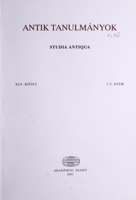
We kindly inform you that, as long as the subject affiliation of our 300.000+ articles is in progress, you might get unsufficient or no results on your third level or second level search. In this case, please broaden your search criteria.

The authors discuss the concept of the life quality survey and some aspects of Social Cohesion Research conducted by the Central Statistical Office, with particular emphasis on financial situation (income, living conditions and a balanced budget). They also present an analysis of the spatial variation of life quality in Poland in terms of financial situation, relationships and satisfaction with life, and the combined analysis of these traits.
More...
The study presents use of methods of multidimensional comparative analysis to assess the health status of the population by voivodships. Data for the analysis are reproduced from the CSO. An assessment of the differences in health was made using Ward's method. The best results were obtained in the group bringing together the voivodships: Zachodniopomorskie, Śląskie, Mazowieckie, Łódzkie, Pomorskie and Dolnośląskie. In the voivodship group the author observed the smallest number of high bloodpressure and rheumatoid arthritis cases, as well as the most favorable situation for the prevention, among others expressed by the number of women performing mammography. The voivodships characterize by the highest spending on health care from the budget of local governments per 1 thousand inhabitants.
More...
The purpose of this article is to compare the diversity of the agrarian structure in Polish sub-regions based on two classification methods: the elimination of vectors and the fuzzy set theory. The data used in the calculations by area groups of farms come from the Agricultural Census of 2010. Each method generated a different picture of the spatial diversity of the test structure. Differences related to the number of groups, their composition, average structure indicators, territorial distribution and degree of the group homogeneity.
More...
The paper presents an analysis of the matriculation exam results of the Polish language at a basic level in Pomorskie and Kujawsko-Pomorskie voivodships in 2011. Values of the basic parameters characterizing the results are presented as well as a detailed analysis of variance between the different categories of data was made. The author hypothesized that the matriculation exam results of the written Polish at a basic level can be described by a normal distribution. In order to verify the appropriate analysis was carried out and appropriate compliance testing. Ultimately, it turned out that there is no reason to reject the hypothesis for all categories of data concerned.
More...
The article deals with the economic efficiency of individual Polish voivodships. It depends not only on the size, capital structure, technology and the organization of production but also on the scale of production. For each regional or country economy there is such a volume of production, which allows full use of scale (benefits) effects. An attention was focused on the impact of the scale of production on changes in technological efficiency of the economy. As a result of application of the method Data Envelopment Analysis (DEA) method, an assessment of the impact of economies of scale on the level of the technology efficiency was made.
More...
The article presents the results of voivodships segmentation, carried out on the basis of data concerning the foodstuff and nonalcoholic beverages price level. In the first phase of analysis a set of diagnostic variables was selected. The basis of selection was analysis of variability and cross-correlation. Then the segmentation with the use of the Ward and k-means methods was conducted. The obtained results were similar for both of these methods. In obtained segments of voivodships a comparative analysis of foodstuff and nonalcoholic beverages price level was conducted.
More...
Being the second longest river of Europe (the longest one is the Volga) the 2850 km long Danube connects different geographical, economic, political regions with various ethnic, religious, historical background. Touching 10 states it collects the waters of 14 countries in its 817 km2 drainage basin and provides the connection with the seas for the countries of the continent. It is an important international watercourse which creates a natural link between the West and the East inside Europe. It has been so for more than 2000 years, having advantages and sometimes disadvantages, too. The geographical importance of the Danube has always been tremendous throughout history; at the same time, it has always played an important role concerning cultural-historic aspects. Since the end of the 20th century, the Rhein-Maine-Danube canal and international watercourse with its 3500 navigable lengths create a unique opportunity for the countries it connects. All this enjoys an important priority in the Danube-region strategy of the EU. The authors of the study provide a short historical outline of the role the Danube has played in Europe with special emphasis on the 19-20th centuries, concerning international legal aspects as well.
More...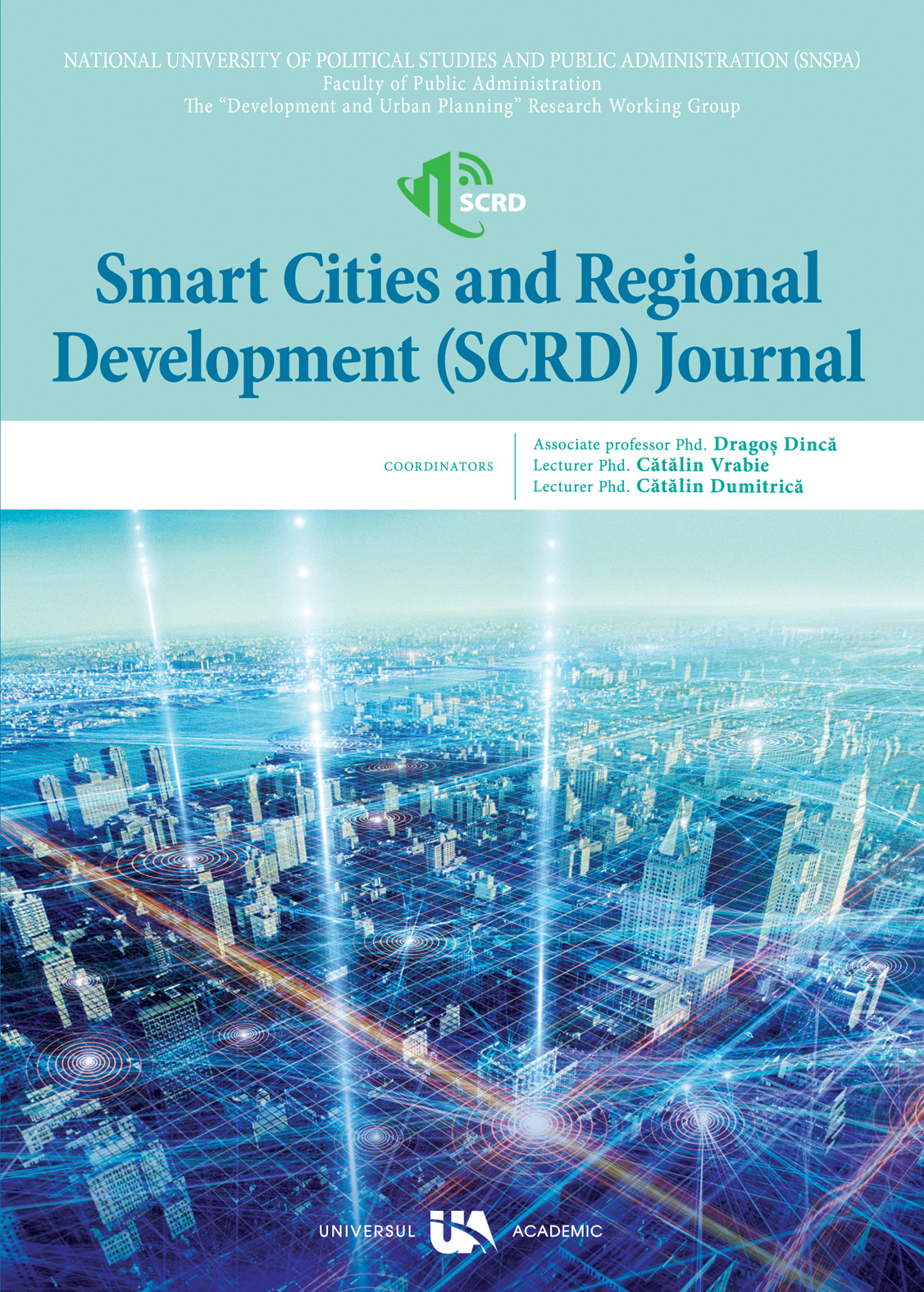
The present article aims at presenting the types of regional policy and through their comprehensive implementation to contribute to improving the living standard of the people. Regional policy in Bulgaria has its own peculiarities. They are the result of changes in the country's economic system in 1989. The institutions, economic and financial instruments for conducting an effective and efficient regional policy are indicated. The implementation of all types of regional policy are a prerequisite for the development of settlements and of cities in modern European in particular. Big cities are a driving force in the development of the European Union.
More...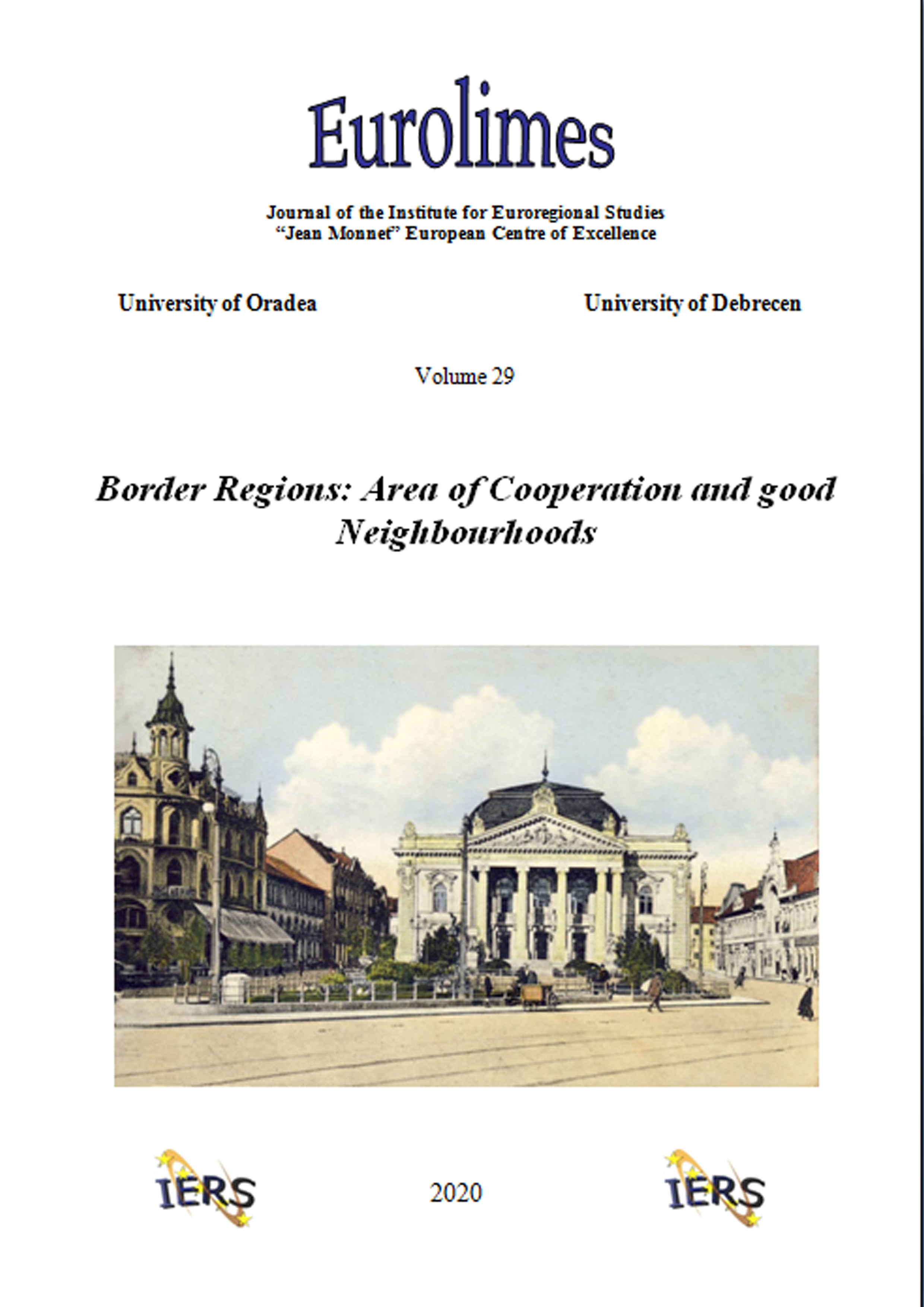
As the Brexit process shows, questions on how to preserve and create sustainable peace and friendly relationships in conflict-ridden border regions have come to the fore in the debate of European integration. In a theoretical context of differentiated Europeanisation that acknowledge the dynamics between centralization, functionality and the territorial dimension, this paper explores the mechanisms that may foster more peaceful and harmonious relationships between neighbouring communities in cross-border relations. Building upon historical evidence, on how the breakup of the union between Sweden and Norway in 1905 evolved from a very hostile climate, close to war, to what is now commonly understood as a “border of peace,” we identify important mechanisms that may be of general interest in similar cases of cross-border hostility. Of particular importance to us is how the relationship between neighbouring communities between Northern Ireland and the Republic of Ireland may develop in the event of Brexit, and if a “hard border” between the two countries will be realized. In a report to the Irish Central Border Area Network (2018), individuals on both sides of the Irish border speaks of fear what will happen after Britain has left the European Union. As the voices from the survey shows, many people fear that old conflicts will rise again, and that the European identity connected to the EU-membership will be replaced by the old national and religious identities, leading to the conflict to erupt once again. Even if we empirically focus on a particular border region the aim is to contribute to the general debate on how functionally differentiated border-regions in Europe may adopt different strategies on how to develop safe and sustainable neighbourhoods.
More...
The article focuses on the perception of border. It is widely believed that the border of European Union is dividing Europe from non-European space. It contributes in developing of European identity versus the identity of „others‟ or non-European countries. Through source analysis I will try to focus on the concept of border and see if it contributes to homogenization of the space. Does the border of European Union create particular perception around the European space?! To what extent are economic and border policies of European Union making member states similar in a way and how do members themselves perceive their role in transnational organization?! Non-European countries try to include themselves in this alliance of advanced states thinking they gain particular privilege by being the members of European Union. After creation of European Union non-member states started to perceive the border as the obstacle or the divider rather than unifier. Even if member states might perceive the union as homogeneous entity to some extent, other non-member countries view the border as divider of spaces and definition of Geographic Europe. Could it be that political border created special perception around the organization which influenced the idea towards European Union among Non-EU states?! The paper will try to see if the border perception influences the perception of whole European Union. Article will try to also look into the problem of homogenous perception of organization and the concrete tools introduced to achieve the similar level of understanding among the member states.
More...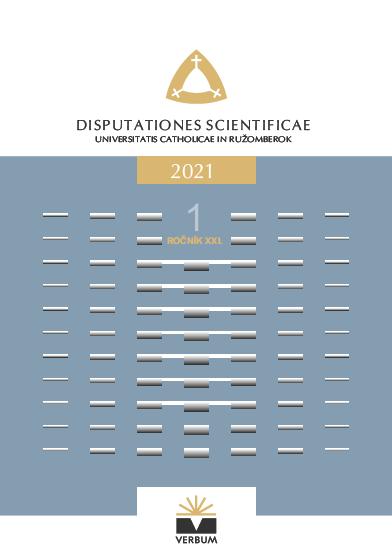
Perception of the landscape is a very subjective factor. The forester perceives the landscape differently, the farmer. The inhabitant behaves differently, the tourist has a different view. The development of regions must be seen in the context of the synthesis of all perspectives. The quality of life has a major impact on the territory. Equipment, availability, quality of environmental components are essential factors of development. However, the main influence on the territory has direct residents and users, who are in the region throughout the period. This is one of the factors on the basis of which we decided to evaluate the quality of life in the rural residence Vlkolínec.
More...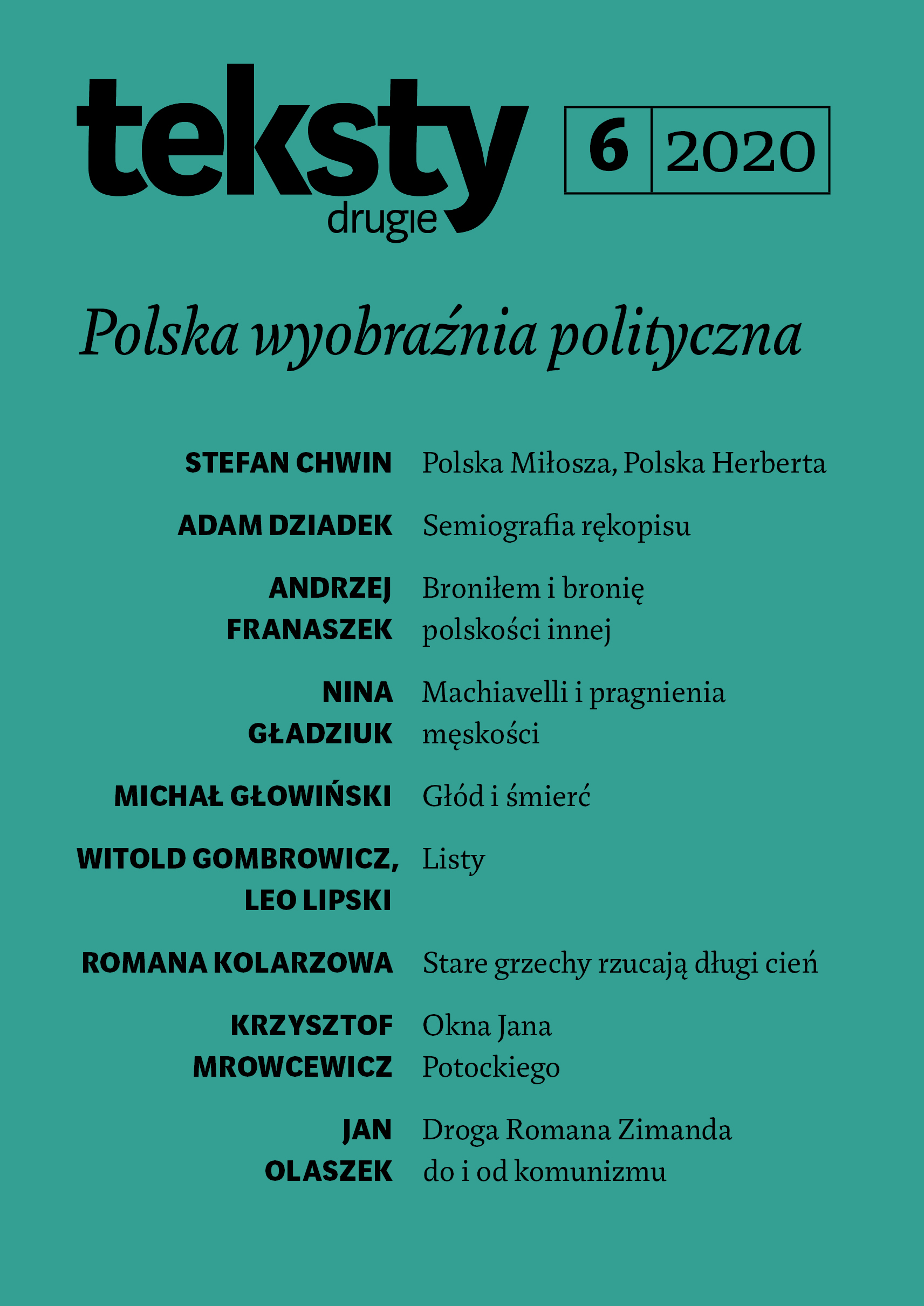
Kobyłecka-Piwońska discusses Argentinian interpretations of Gombrowicz’s work that refer to notions of posing. She begins by outlining the history of simulation as an illness and as a strategy of assimilation applied by immigrants in Argentina. Next she analyses passages in the Diary, using the notion of the pose as an attitude to life and as a narrative strategy. The article concludes with an analysis of Gombrowicz’s Wędrówki po Argentynie[Travels in Argentina], where both Polish and Argentine nationality, presented throughthe lens of exotism, appear as a pose.
More...
Rereading Bolesław Prus’s novel The Doll, Kuziak explores how the protagonist Wokulski experiences Paris. This perspective sheds light on the emergence of Poland’s marginal position in the nineteenth-century world system, where Paris was a centre of civilisation. Prus’s novel portrays the birth of the Poles’ Great Other in the nineteenth century – the European, notably the French, and it provides an analysis of the reasons of Poland’smarginality.
More...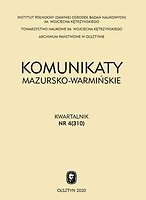
This paper aims at discussing the spatial development and historical buildings of Nowe Miasto Lubawskie since 1939. It presents the history, architecture and modern state of objects (especially monuments) that shape the historical landscape of Nowe Miasto Lubawskie. Buildings that have not survived to this day are also discussed. Moreover, the memorial places in the town are presented here; the above chronological limitations do not apply to this aspect. Apart from a monography on Nowe Miasto Lubawskie, the paper refers to, among others, archival materials from the State Archives in Olsztyn and the archives of the voivodeship’s Monuments Protection Office in Olsztyn (Branch in Elbląg), tourist guides, information bulletins, articles in local Nowe Miasto papers and photography–based documentation. The core of the article is preceded by a short characterisation of Nowe Miasto Lubawskie and a description of the changes of its administrative affiliations over the centuries.
More...
In this study, we explore the consistency of Indonesian Rupiah (IDR) – denominated equity mutual funds offered in Indonesia from 2007 to 2017 from various holding periods, namely one year, three years, and five years. Two questions are addressed. Will the winning mutual funds be the winner in the following period? Is the performance of a longer period more persistent than that of the shorter period? Using the nominal return from these eleven years, we find that the equity mutual funds in Indonesia earn no stable performance. The winner will not always be the winner in the following observed period. In addition, no evidence is found that long-term performance would result in a better persistence than that of the shorter time frame.
More...
The circular economy is interpreted as a stable economic system, which aims at eliminating the consequences and costs, as well as providing a constant cycle of necessary resources. That is why it is so important to conduct its assessment today. The object of the article is the state of the circulating economy of the leading countries of the world. The purpose of the article is to assess the possibilities and mechanisms of the circular economy in the context of the introduction of the European Union. The methodological basis is a system of mutually complementary general scientific and special methods of cognition. To assess the quality of the implementation of the circular economy, we have chosen the recycling method as the most relevant and easiest to use. The study examined the essence, progress, principles and main advantages of using the circular economy model in the context of implementing this model in 20 countries of the European Union, and the model for analysing the processing possibilities in the European Union as a basic tool for assessing the implementation of a circular economy are presented.
More...
The article considers the current situation of women in the European Union labor market in the context of the UN Agenda 2030 as well as describes the relevant EU legislation. The factors that determine the difference in pay and features of inequality at the professional level are identified. The reasons for gender imbalance in the digital economy are analyzed. The author analyzes the new document “Equality Union: Gender Equality Strategy 2020-2025” presented by the European Commission in March 2020 (section on the gender-equal economy), and stresses importance of overcoming existing gender stereotypes in all spheres of life, ensuring greater equality in training, recruitment and promotion in high-tech industries to prevent sectoral and professional segregation in the digital economy. This is also necessary for the optimal functioning of the so-called “just transition” mechanism, a modern industrial strategy for the transition to a green and digital economy in Europe.
More...
The protection of motherhood and childhood occupied a significant place in the zemstvo medical practice of the late XIX - early XX c. It was “zemsky” doctors who were first to investigate the risk factors for maternal and child health in a Russian village. These included, first of all, the imperfect system of obstetrics, the incorrect feeding of infants, and the prevalence of acute childhood infections. For the protection of the health of the mother and child, work has been directed to organize skilled obstetric care, establish nursery-shelters, prevent acute childhood infections, support breastfeeding, and prevent orphanhood. At the same time, a number of zemstvo medico-social programs (organization of obstetric centers, nurseryshelters) were ineffective. The reasons for these failures were cultural traditions, peculiarities of the economic system, and the poverty of the Russian peasantry. More significant success was achieved in the prevention of acute childhood infections, medical care for pupils of rural schools and orphans. With the help of serum therapy, zemstvo doctors were able to reduce mortality from diphtheria. In addition, a vaccine against scarlet fever was being tested in Saratov region. The establishment of permanent medical supervision of children in Saratov orphanage resulted in 20-30 % mortality reduction. Many initiatives of zemstvo doctors: support of breastfeeding, prevention of orphanhood, mass immunization are being used in modern maternity and childhood protection systems.
More...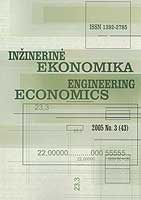
In Lithuania, as in other countries of the world, economic and social development of the regions differs, therefore, the EU regional policy goal is to ensure equal regional economic and social development, decrease of regional divergence and growth of regional market competitiveness. The article deals with the theories of regional economic convergence and divergence, their reflections in current regional economic development policy; Structural funds as stimulating means of regional convergence; Structural fund impact on regional development in Lithuania; and relationship between regional economic and social development level and Structural fund allocation level. Based on Structural fund allocation level in different Lithuanian regions, current status of Structural fund allocation among the regions is analyzed and its key issues are disclosed.
More...